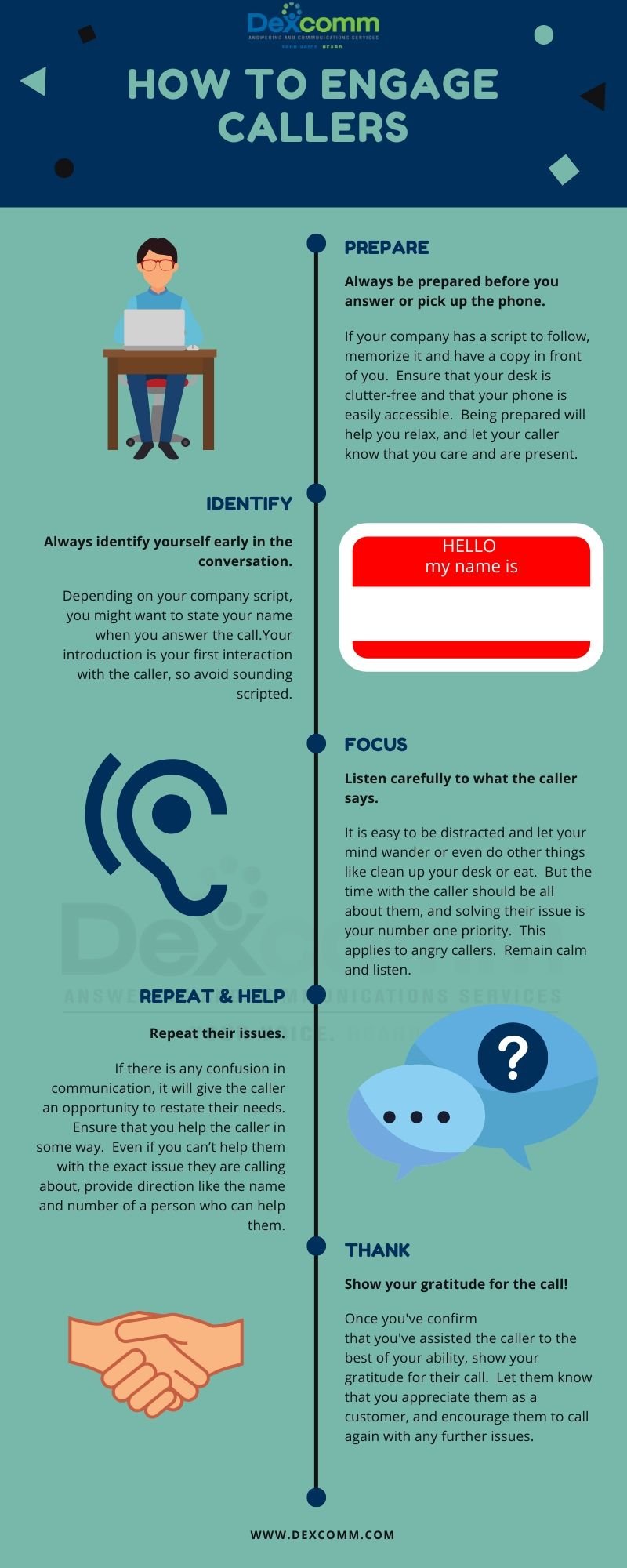Your dispatchers are representing your business, and their attitude and level of professionalism will have a major impact on your current and potential customer relationships (AKA your bottom line).
Along with providing the necessary professionalism and compassion to callers, operators must also engage with callers.
Engaging with customers over the phone allows for them to feel heard and understood. A caller who feels heard will believe that their issue is going to be solved, and will be satisfied with your company.
Following these six few steps below will ensure a satisfied customer and a successful call.
6 Steps to Engage Callers
1. Prepare.
Always be prepared before you answer the phone. If your company has a script to follow, memorize it and have a copy in front of you. Ensure that your desk is clutter-free and that your phone is easily accessible. Have a pen and pad readily available in case you need to take a message for someone else or follow-up is involved. Being prepared will help you relax, and let your caller know that you care and are present.
2. Identify.
Always identify yourself early in the conversation. Depending on your company script, you might want to state your name when you answer the call.
Ex.) "Thank you for calling ABC Corp. This is John. How may I help you?”
Your introduction is your first interaction with the caller, so avoid sounding scripted. Smiling while you speak will help you sound positive and helpful.
3. Focus.
Always listen carefully to what the caller is telling you. While on the phone, It is easy to be distracted and let your mind wander or even do other things like clean up your desk or eat. But the time you or your operators spend with the caller should be all about them. Solving the caller's issue is an operator's first priority.
This concept also applies to angry callers. An angry caller needs your attention possibly even more so. When handling angry or upset callers, always remain calm and listen. Arguing with an upset caller will not help them and will only lead to further aggression and an inablity for your operator to solve their issue.
4. Repeat.
To ensure that you are truly hearing what the caller is saying, repeat their issues. If there is any confusion in communication, it will give the caller an opportunity to restate their needs.
A key role for any call operator is to guarantee accuracy within calls and through messages. Along with confusion, innacuracies from a call operator can also hurt your company.
Repitition also will help your caller. Some callers may not be sure why they are calling until they hear you say it out loud.
5. Help.
Ensure that you help the caller in some way. Even if you can’t help them with the exact issue they are calling about, provide direction like the name and number of a person who can help them.
Callers appreciate an operator that is sympathetic and able to provide value to them.
6. Thank.
Once you've confirm that you've assisted the caller to the best of your ability, show your gratitude for their call. Let them know that you appreciate them as a customer, and encourage them to call again with any further issues.
Key Points
Taking business calls can be more challenging than it sounds. You must give your full attention to the caller while remaining calm and positive. Each call is different, but with a little preparation and focus, you can ensure that every caller will become an engaged and satisfied customer.







.png)
